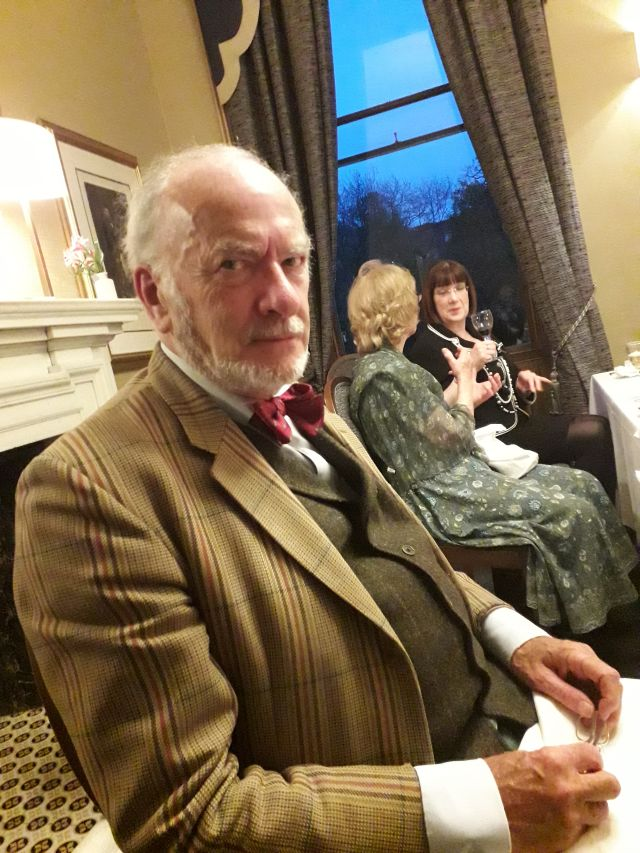Annual Dinner : David Purdie on the Scottish Enlightenment
The Scottish Enlightenment was a flexibly-defined period extending over a hundred years to beyond the death of Walter Scott during which Edinburgh was the intellectual centre of Europe. Voltaire claimed that it was to Scotland that the world looked for all its ideas on the nature of civilisation, and the number of advances emanating from the city was certainly remarkable, extending to whole new disciplines.

Consider a conversazione that took place at Sciennes House in 1787. Gathered there were Adam Ferguson the founder of sociology and James Hutton who inaugurated geology by taking on the Church about its teachings on the origin of the world. Young Walter Scott aged just 15 was expecting a career in his father’s law office since the possibility of becoming a writer had not yet beckoned, but he was already collecting ballads such as Sir Patrick Spens : later he would invent the historical novel, operating like a surgeon on the narrative while keeping the body of the drama alive. David Hume philosopher, historian, economist and essayist sought to create a naturalistic science of man that opposed the theological argument for God’s existence while proclaiming that reason is and ought only to be the slave of the passions, and appropriately died shortly afterthe Declaration of Independence - his good friend Ben Franklin attended the signing thereof on the very date and time(4pm here, 11am in Philadelphia, on 4 July 1776) of Hume's last dinner party at home at the south-west corner of St Andrew Square. Pride of place in the assembled company however lay with a visitor from the west, Robert Burns whose works now brought together in the Kilmarnock Edition ensured that Edinburgh would be the city of not only science and philosophy but also prose and poetry.
The regard with which Edinburgh was held would continue from the Enlightenment right up to the present day. Einstein hailed the genius of Clerk Maxwell for its influence on his own works, and a poll among scientists found the three greatest of all time to be Isaac Newton for the theory of gravity, Clerk Maxwell for that of electro-magnetism and Einstein for relativity – while Watson-Watt should be remembered for the wartime role of radar in saving civilisation itself. One in four youngsters in today’s Edinburgh is a student, and the University of Edinburgh is reckoned to be one of the sixteen greatest in the world, with only the USA and Israel rivalling Scotland for graduate output.
The world has seen three Enlightenments – first ancient Athens, then renaissance Florence and finally on the verge of modern times our own Scottish one here in Edinburgh.